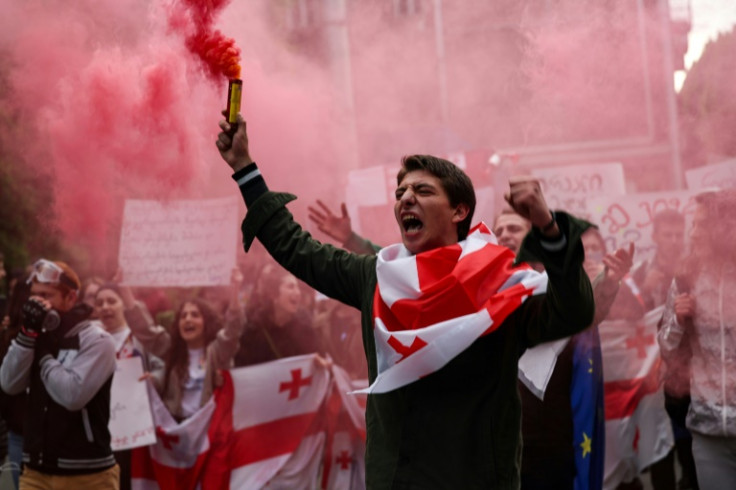
Georgia was set to adopt a "foreign influence" bill on Tuesday despite mass protests against a law criticised for mirroring repressive Russian legislation.
Thousands of Georgians, mainly youths, have rallied outside parliament for three straight nights and have promised to be back when MPs are due to arrive Tuesday to pass the contentious legislation.
Georgian Prime Minister Irakli Kobakhidze vowed on Monday to push it through in a third reading.
"Tomorrow the parliament of Georgia will act on the will of the majority of the population and pass the law," he said.
He warned that if authorities backed down, Georgia would lose its sovereignty and "easily share the fate of Ukraine", although it was not immediately clear what he meant by that.
The bill requires non-governmental organisations and media outlets that receive more than 20 percent of their funding from abroad to register as bodies "pursuing the interests of a foreign power."
Russia has used a similar law to crack down on dissent.
Protesters are expected to stage fresh rallies Tuesday in the capital Tbilisi.
"They will pass this law and we have to demonstrate our protest," said 57-year-old Levan Avalishvili, who left the parliament area before midnight on Monday, promising to be back the next day.
Many fear violence, with tensions running high and police beating a group of protesters detained at dawn on Monday.
The Caucasus country has witnessed more than a month of sweeping protests since the ruling Georgian Dream party re-introduced the bill in a shock move, a year after shelving due to a huge backlash.
Opponents of the bill fear it will take Tbilisi off its track of joining the European Union and hugely erode democracy in the tiny country.
They also accuse the ruling party of trying to move the Black Sea nation closer to Moscow.
The ruling party, in power since 2012, has defended the law as necessary for the country's sovereignty.
Its billionaire backer Bidzina Ivanishvili, who made his fortune in Russia, has accused NGOs of plotting a revolution and being foreign puppets.
He has been accused of leaning towards Moscow and has not publicly condemned the Kremlin's invasion of Ukraine



